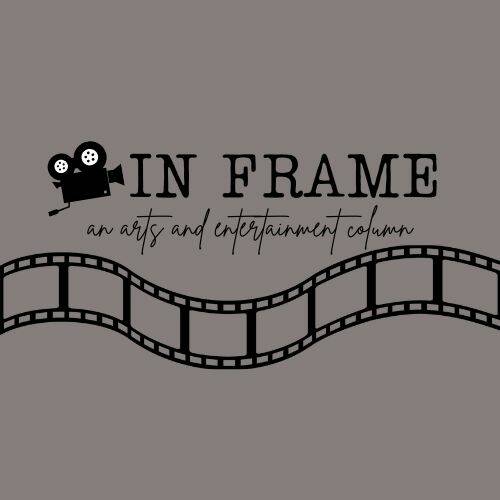The New York Times’ list of the 100 best films of the 21st century so far has now been released. It is a list that was compiled by the ballots of esteemed filmmakers from across the industry, and, I must say, I find the list quite favorable.
The list’s preamble poses the following thought and question:
“Between streaming services and superhero blockbusters, the way we watch and think about movies has changed dramatically over the past 25 years. But through that period of upheaval, which films have truly stood the test of time?”
For the fans, the New York Times allowed members of the public to make their own lists of the best movies released since 2000, and I, of course, took the time to weigh in. There are so many films to consider, and trying to determine which ones are the “best” is a challenge. Still, I love an exercise like this. To narrow down my list, I gave myself a pair of guardrails.
First, I wanted to disregard sequels, which is mostly due to the “The Lord of the Rings” films having a monopoly on my unguarded “best of the century” list. Three films from the same franchise felt, for this exercise, a little unfair. So, only “The Fellowship of the Ring” would be included and eligible for my ballot.
In addition, I limited myself to my beloved best picture nominees. Listen: I love the Oscars. Let me enjoy my thing. I wanted to honor my own rabid watching habits for this exercise. It felt more true to me and my film intake.
And so, with these guardrails in mind, I came up with a list of what I believe are the ten best films of the 21st century so far, and I have since compared my personal list with the New York Times’ list.
Three in the Top 10
I was not surprised to see that one of my personal 10 was listed at number one on the New York Times list. “Parasite” is about as agreed upon of a modern classic as possible. Its mix of genres, perfect production design and editing, and terrifically dark commentary on social status are its strongest qualities. It was a no-brainer for my list and, it appears, for the industry voters as well.
At number eight on the New York Times list is “Get Out” from Jordan Peele. I think this is the best film in the timeframe allowed, and I couldn’t be happier to see it get its continued respect. More than your average horror film, “Get Out” is quite possibly the most engaging film about race relations ever made. Its relevance only increases as the years go by.
And speaking of films that remain painfully relevant, “The Social Network” snagged the number ten spot on the New York Times list. Aaron Sorkin’s quick words and David Fincher’s brooding direction — backed by an all-time score — made “The Social Network” an instant classic. Its cutting understanding of social media’s antisocial backbone is so real.
Five additional commonalities
In addition to those three films listed under the previous heading, I also matched with the New York Times’ voting base on five additional films. One is the aforementioned “The Lord of the Rings: The Fellowship of the Ring,” or what I believe is the best film in its trilogy — guardrails in place or not. It’s the ultimate fantasy piece, standing on its own merits and as the kickoff to Peter Jackson’s three-part masterclass.
Two Christopher Nolan films — 2010’s “Inception” and 2023’s “Oppenheimer” — made the New York Times list and my own. “Inception” is truly iconic. Its multi-layered, mindbending format is referenced frequently in the culture and in more ordinary conversations. “Oppenheimer,” on the other hand, is haunting, entertaining, and made up half of the biggest film phenomenon of my lifetime. Both films bring out the best in Nolan’s sensibilities, with existential dread and non-linear storytelling taking center stage.
“Arrival” is Denis Villeneuve’s sole entry on the New York Times, and, as a viewing experience, I find it deeply unsettling. I can distinctly recall seeing it in theaters and having my mind blown. I hadn’t seen anything so eerie before. I can return to it at any time, even though I am well acquainted with its twisty ending. That’s a sign of its masterpiece status.
“Whiplash” from Damien Chazelle is another one of those beloved modern classics across the board, with both critics and general audiences growing to adore it. Count me in. The layered, antagonistic performance from J.K. Simmons has lived rent-free in my head for over a decade. Here’s a good reminder that the size of a film’s budget is not equal to its quality.
Two that missed the cut
Though I find the New York Times list to be favorable, I was disappointed to see two of my favorites miss.
“Sound of Metal” was the best film of 2020, in my opinion. The year in general was a surprisingly strong one for the quality of cinema, but perhaps that was due to the indie circuit rising to the top of the heap when everything else was delayed. The entirety of 2020’s slate was curiously missing from the New York Times list. Surely there was room for “Sound of Metal,” the surprisingly empowering story of a metal drummer going deaf.
And what about “Room” from Lenny Abrahamson? It’s my favorite film of the past 40 years. Brie Larson delivers one of the great performances, and the emotional gut punches littered throughout the screenplay are still a creative model I admire and call upon. I’m stunned by the snubbery from the voting base. As I understand it, the film is quite popular and revered in the industry.
Still, I think hitting on eight out of ten of my personal selections is a strong ratio. I’ve seen exactly half of the New York Times list, and, if nothing else, reviewing the results reminded me that there is a larger film world to explore. All in good time.
In Frame is a weekly arts and entertainment column focusing on everything from pop culture and new movie releases to the local arts and culture found right here in NEPA. News reporters Sam Zavada and Margaret Roarty contribute to this column.





